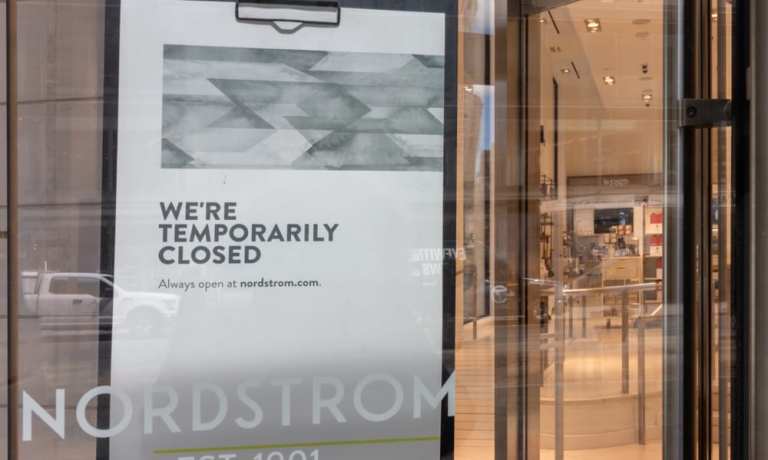Nordstrom And Lord & Taylor Dampen Retail Reopening Plans

The retail reopenings underway hit a few roadblocks on Wednesday (May 6), as Nordstrom’s, L Brands and Lord & Taylor all checked in with bad news. All three companies had reported liquidity problems since the pandemic crisis started, but the convergence of the three events during earnings season focused a harsh spotlight on the realities of post-crisis retail.
The Nordstrom news was the most unexpected. The retailer said on Tuesday (May 5) that it will close 16 full-line stores and adjust its supply chain capabilities to cut costs. The stores to be shuttered were not identified in the company’s statement. The chain said the store closures as well as changes in how it realigns its inventory within regional distribution will save $150 million, in addition to the $500 million in cash reductions it has already announced.
“We’ve been investing in our digital and physical capabilities to keep pace with rapidly changing customer expectations. The impact of COVID-19 is only accelerating the importance of these capabilities in serving customers,” said Erik Nordstrom, chief executive officer of Nordstrom, Inc., in a statement. “More than ever, we need to work with flexibility and speed. Our market strategy helps with both, bringing inventory closer to where customers live and work, allowing us to use our stores as fulfillment centers to get products to customers faster, and connecting digital and physical experiences with services like curbside pickup and returns.”
Lord & Taylor and its parent company Le Tote had made moves toward bankruptcy about a month ago. According to Reuters, the company is now preparing to liquidate its inventory as soon as its stores reopen, proving that the chain does not expect to exit the pandemic with a healthy balance sheet or acceptable deals with creditors. The chain is reportedly holding off on a bankruptcy filing until it can reopen its stores. Lord & Taylor has lined up liquidators to help it conduct sales and will permanently close all stores once the merchandise is sold.
And L Brands, parent of Bath & Body Works and Victoria’s Secret, also sent up red flags on Tuesday (May 5). The company announced an agreement with Sycamore Partners to terminate its Victoria’s Secret deal, which leaves the troubled chain without a suitor. L Brands said it is “implementing significant cost reduction actions and performance improvements at Victoria’s Secret,” which will include “proactive measures” to ensure liquidity “in light of the ongoing COVID-19 pandemic.”
The constant stream of retail disruption signals a sea change in the retail landscape as it prepares to exit the pandemic.
“Change is inevitable, and we can think it’s awful, but it’s just nature,” said Wharton marketing professor and former dean Thomas Robertson, director of the Baker Retailing Center at Wharton. “The effect of the pandemic is to accelerate the demise of retailers that had lost their way and that people no longer had a reason to [visit]. There will be a reconfiguration as we come out of this. I don’t know what it’s going to look like, but there will be new players, some existing players will get stronger, and I expect acquisitions will occur. There will be a shakeout. But, in total, retail sales will come back as strong as ever.”